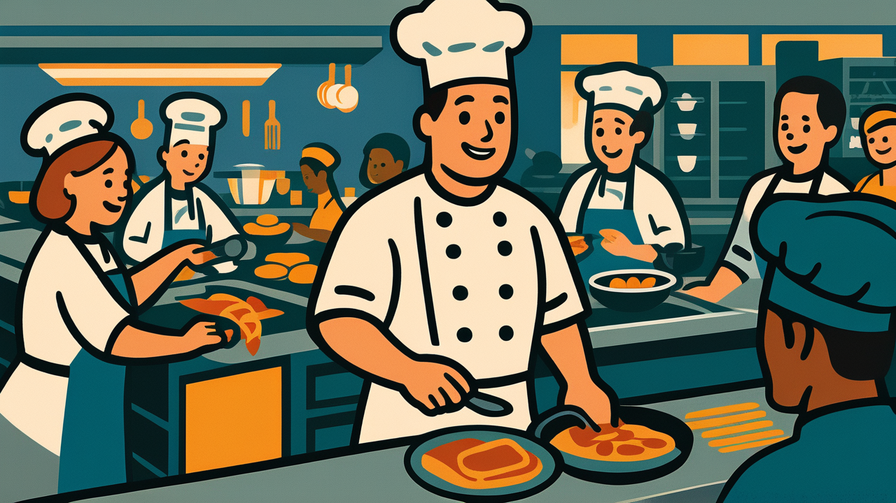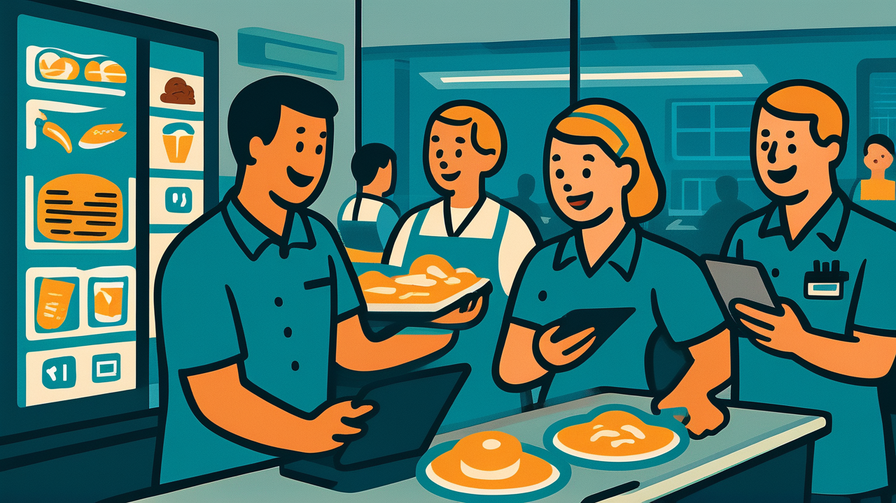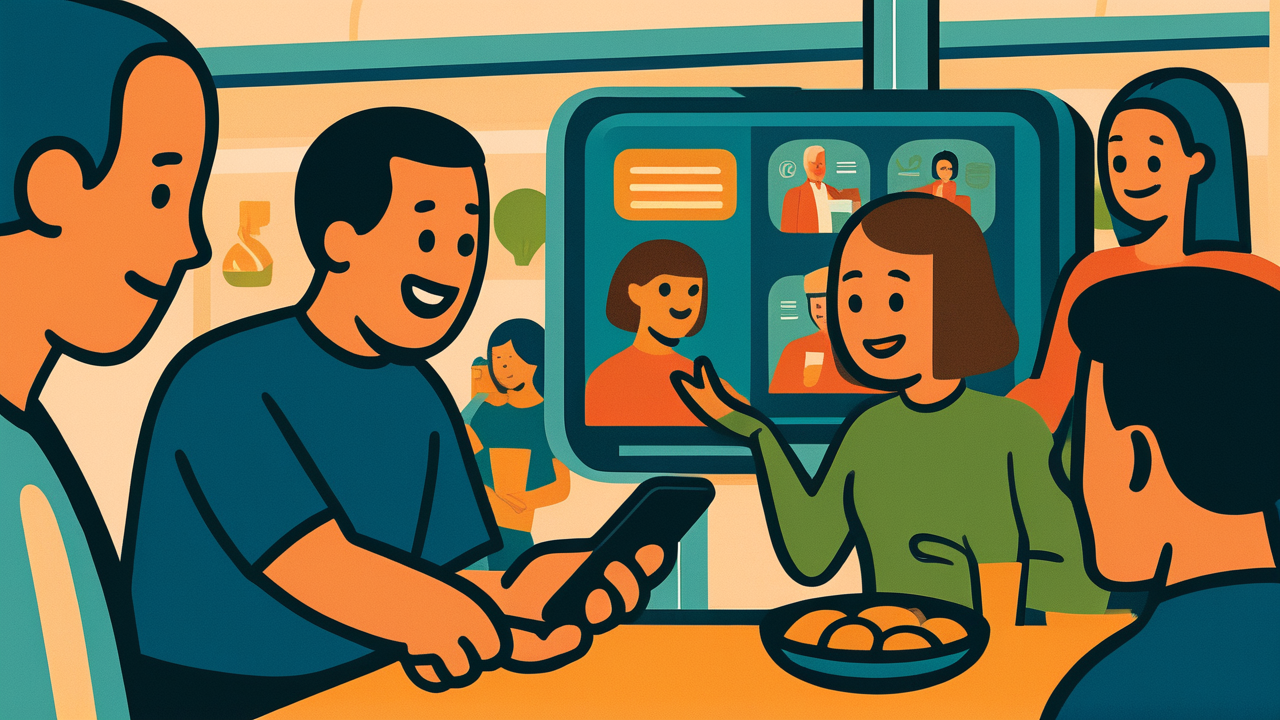[Disclaimer] This article is reconstructed based on information from external sources. Please verify the original source before referring to this content.
News Summary
The following content was published online. A translated summary is presented below. See the source for details.
Elior Group, a global leader in contract catering that serves 3.2 million meals daily, has partnered with IBM France to create an “Agentic AI & Data Factory” aimed at revolutionizing their food service operations. This collaboration will leverage IBM’s expertise in data analytics and artificial intelligence to optimize Elior’s operational processes across 11 countries. The centerpiece is a centralized AI platform that will deploy autonomous AI agents capable of processing and analyzing large data volumes to improve performance across Elior’s various business units. These AI agents will help personalize services, optimize food preparation, reduce waste, and enhance customer experiences in schools, hospitals, offices, and government facilities. IBM will also assist with data governance, change management, and employee training to ensure successful adoption. With 133,000 employees serving meals at 20,200 locations across three continents and generating €6 billion in revenue, Elior sees this digital transformation as crucial to maintaining its leadership position in the foodservice industry. The flexible, scalable platform will adapt to specific needs of each entity while integrating with existing systems.
Source: IBM News
Our Commentary
Background and Context

Ever wonder who makes the food in your school cafeteria or your parent’s workplace? Companies like Elior Group are behind millions of meals served daily in schools, hospitals, offices, and government buildings worldwide. Now, they’re partnering with IBM to make these food services smarter using artificial intelligence.
Think of it this way: instead of guessing what food to prepare each day, AI can predict exactly what people will want to eat, reducing waste and ensuring everyone gets meals they enjoy. This partnership is about bringing the same kind of smart technology that powers your favorite apps to the world of institutional food service.
Expert Analysis
The “Agentic AI & Data Factory” sounds complex, but it’s actually a brilliant concept. “Agentic” means the AI can act independently, like a smart assistant that doesn’t need constant instructions. Here’s what makes this revolutionary:
Smart Predictions: The AI agents can analyze patterns—like how many people eat pizza on Fridays or salads on Mondays—and adjust food preparation accordingly. This means less food waste and fresher meals for everyone.
Personalization at Scale: Imagine if your school cafeteria could remember that lots of students are vegetarian or that certain allergen-free options are popular. The AI can track these preferences across thousands of locations and help plan menus that work better for everyone.
Real-time Adjustments: If it’s unexpectedly hot and everyone wants cold drinks and salads instead of hot meals, the system can detect these patterns and alert kitchen staff to adjust their preparation.
Additional Data and Fact Reinforcement
The scale of this operation is massive:
• 3.2 million meals served every single day
• 20,200 restaurants and food service points across 3 continents
• 133,000 employees working in 11 countries
• €6 billion in annual revenue (about $6.5 billion)
What’s particularly smart about this approach is that the AI platform is designed to be flexible and scalable. This means a hospital in France can use it differently than a school in Spain, but they’re all connected to the same intelligent system that learns and improves over time.
Related News
This partnership reflects a broader trend of traditional industries embracing AI transformation. We’ve seen similar moves in retail (with AI shopping assistants), transportation (with route optimization), and healthcare (with diagnostic AI). Food service might seem like an unlikely candidate for high-tech transformation, but it’s actually perfect for AI optimization.
The timing aligns with growing concerns about food waste and sustainability. The UN estimates that about one-third of all food produced globally is wasted. By using AI to better predict demand and optimize preparation, companies like Elior could significantly reduce their environmental impact while also saving money and serving better food.
Summary

Elior and IBM’s partnership represents a major shift in how institutional food service operates, moving from traditional methods to AI-driven smart operations. This isn’t just about technology for technology’s sake—it’s about serving better food, reducing waste, and creating more efficient operations that benefit everyone from students to hospital patients.
For students, this development could mean better cafeteria food that’s fresher, more varied, and better aligned with what people actually want to eat. It also showcases how AI is transforming unexpected industries, creating new career opportunities that blend technology with traditional services. Whether you’re interested in culinary arts, computer science, or business, this kind of innovation shows how different fields are converging in exciting ways.
Public Reaction
Food service workers have expressed mixed reactions, with some excited about AI reducing tedious inventory tasks while others worry about job impacts. Customers and institutions are generally positive, hoping for better meal quality and reduced costs. Sustainability advocates praise the potential for reducing food waste. Tech industry observers see this as validation that “agentic AI” is moving beyond buzzword status into practical applications that solve real-world problems.
Frequently Asked Questions
Q: Will AI replace cafeteria workers?
A: No, the AI is designed to help workers make better decisions, not replace them. Humans are still needed for cooking, serving, and the personal touch that makes food service special.
Q: How will this affect the food in my school cafeteria?
A: You might see more variety, fresher options, and menus that better match what students actually want to eat, based on data about preferences and consumption patterns.
Q: What is an “AI agent” in simple terms?
A: Think of it as a smart assistant that can make decisions on its own, like noticing that sandwiches sell out every Tuesday and automatically suggesting the kitchen make more.


